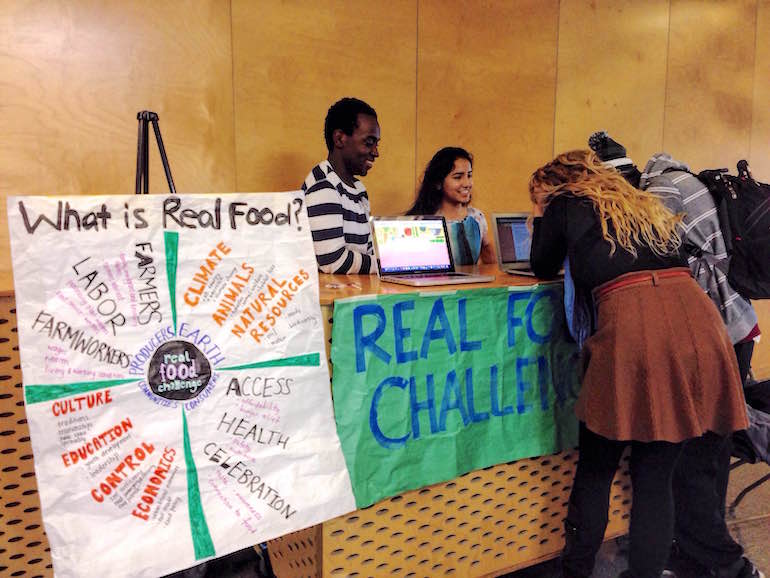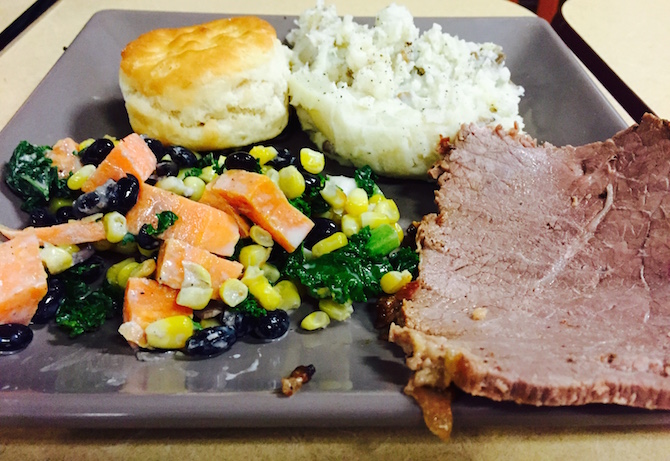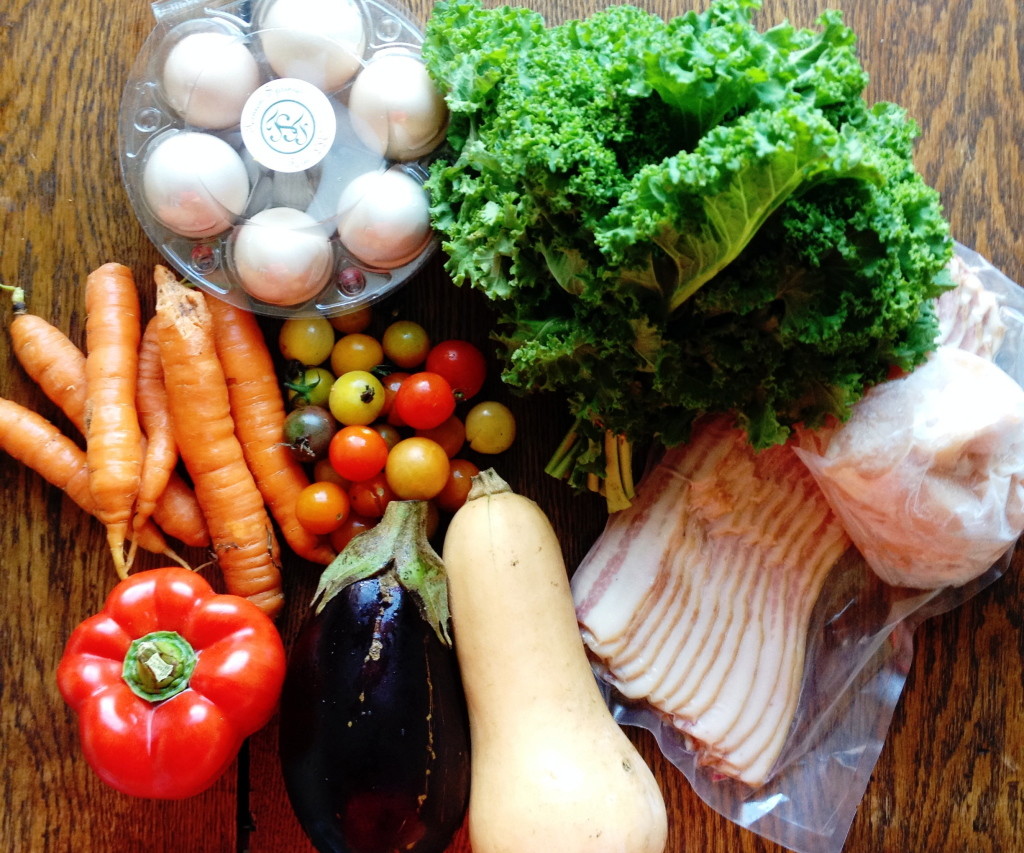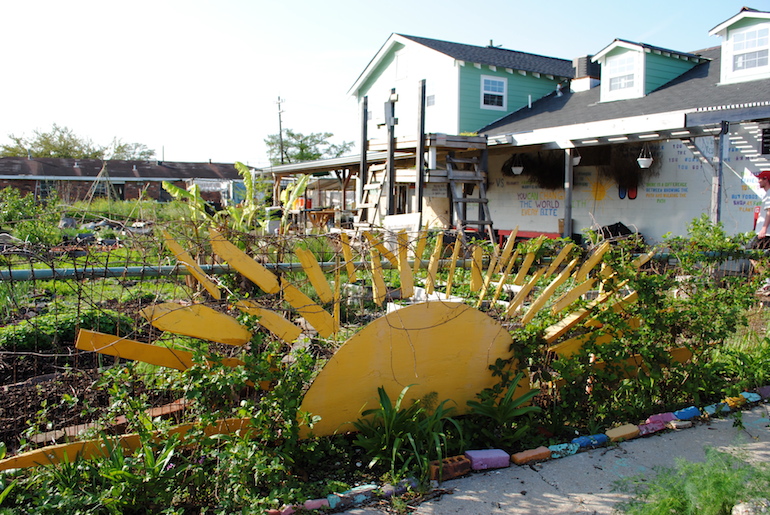If you’ve walked down McAlister or been to the LBC recently, you may have noticed people tabling for the “Real Food Challenge” and heard them ask, “Do you want more real food in the dining hall?” Whether that got you to visit their table, made you think, or just forced you to walk faster, students at universities all around the nation are asking the same question.

Photo courtesy of Mia Nguyen
Where exactly is the food in our dining hall coming from? Is the produce sustainable? Were the animals ethically treated? Were farmers in safe working environments? It was questions like these that led to the creation of the Real Food Challenge, a national movement that strives to bring more local, ecologically-sound, humane, and fair food, to college campuses.
The main goal of the Real Food Challenge is to get college campuses to pledge at least 20% of their food budget on Real Food sources by the year 2020. But what exactly does that mean? For food to be considered “real” it must fall under four categories: local, ecologically-sound, humane, and fair.

Photo by Meera Kumar
Local means that the food comes from nearby farms and businesses, making it fresh, seasonal, and better for the local economy. Ecologically-sound refers to food that is sustainable and preserves natural resources.
The Real Food Challenge specifies that to qualify as humane, animals must be able to “express natural behavior in a low-stress environment” and should be “raised with no hormones or unnecessary medication.” Finally, fair means that all those employed throughout the process have a fair wage, safe working conditions, and equality.

Photo by Emily Brown
As of now, only one major school in the southeast has accepted this challenge. That could change soon, though, as a group of students are striving to make the goal of Real Food Challenge a reality here on Tulane’s campus. These students are currently spreading the word and trying to partner with Sodexo to begin bringing more Real Food to the dining hall.
It’s important to note that the Real Food Challenge not only benefits those who eat at the dining hall, but also local farmers who are supported through the movement. This means that Tulane will have the opportunity to support local New Orleans businesses and give back to the community, which has given so much to us.

Photo courtesy of urabroadinamerica.wordpress.com
If you are inspired to take part in igniting change and want to bring more Real Food to our campus, then sign this online petition to demonstrate your support. At the end of the day, a challenge that benefits students, the local community, animals, and the environment seems like a challenge worth taking.


